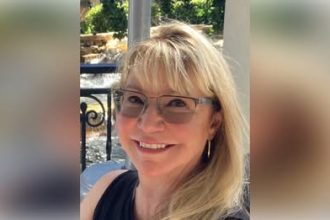TORONTO, ON — DR. SHEILA COLLA’S SUDDEN PASSING LEAVES A VOID IN CANADA’S ENVIRONMENTAL AND ACADEMIC COMMUNITIES
Toronto, Ontario — The environmental and academic communities across Canada and beyond are grieving the sudden and unexpected loss of Dr. Sheila Colla, a distinguished Associate Professor at York University and a globally respected advocate for pollinator conservation. News of her passing has sent waves of shock and sorrow through universities, conservation groups, and among those working on the front lines of ecological justice.
Dr. Colla was widely recognized not only for her cutting-edge research in native bee populations, but for her rare ability to bridge the worlds of science and public policy. Her death marks a profound loss, both intellectually and emotionally, for everyone touched by her scholarship, activism, and unrelenting drive to build a more just and sustainable future.
A CAREER ROOTED IN SCIENCE, DRIVEN BY PURPOSE
Dr. Sheila Colla’s academic journey was not just about discovery; it was about action. Based in Toronto, she held an influential position within the Faculty of Environmental and Urban Change at York University. Her research focused primarily on native pollinators, with a particular emphasis on the alarming decline of bumblebee populations across North America. What set her apart was her willingness to engage with difficult questions—those involving systemic injustice, the role of colonialism in conservation practices, and the ethical responsibility of scientists in an era of climate crisis.
Her work was instrumental in bringing attention to the rusty-patched bumblebee, once common in Southern Ontario and now nearly extinct in the region. She was among the first Canadian researchers to formally document this disappearance, sounding the alarm before many others recognized the severity of the issue.
Yet her career was far from confined to research papers and academic conferences. Dr. Colla believed that science should serve the people and the planet. She used her position to advocate for policy changes, inspire grassroots movements, and empower communities to take ownership of ecological stewardship.
LEADING WITH COURAGE AND COMPASSION
What distinguished Dr. Colla in the scientific community was her fierce commitment to advocacy, particularly around issues involving environmental justice. She never separated ecology from social equity. Whether speaking to university students, community organizers, or government officials, she pushed for inclusive conservation practices that recognized the lived experiences of marginalized groups—particularly Indigenous communities whose knowledge systems have long preserved ecological balance.
Those who worked closely with her often spoke of her openness, her mentorship, and her ability to listen with deep intention. She created academic spaces that welcomed a diversity of perspectives, and she took seriously the responsibility of nurturing the next generation of environmental leaders.
Her work extended into collaborative efforts with NGOs, farmers, urban planners, and educators, reinforcing her belief that ecological restoration cannot succeed without the participation and leadership of local communities. She co-led initiatives that sought to rethink urban spaces—from schoolyards to green rooftops—as viable ecosystems for pollinator species. These projects inspired many to see their own neighborhoods as integral parts of the planet’s biodiversity puzzle.
A BEACON IN POLLINATOR CONSERVATION
Dr. Colla’s contributions to pollinator science cannot be overstated. Her research was widely cited in conservation literature and played a critical role in shaping both public understanding and policy measures concerning wild bees. She emphasized that pollinator health was not just a scientific issue, but a societal one—with direct links to food security, agricultural sustainability, and climate resilience.
In partnership with other scientists and environmental organizations, she co-authored national reports, testified at legislative hearings, and helped inform Canada’s Pollinator Health Action Plan, a government initiative aimed at mitigating threats to pollinators.
She was also one of the founding members of Bumble Bee Watch, a citizen science project that allowed everyday people to contribute to pollinator data by documenting bee sightings across the continent. Through this initiative and others, she brought science into public hands and made it accessible, relevant, and empowering.
Her outreach extended far beyond professional circles. Through blogs, podcasts, public talks, and social media, she invited people from all walks of life into conversations about ecological balance, resilience, and action. It was not uncommon for farmers, school teachers, and even children to quote her research—testament to her ability to communicate science with clarity and heart.
AN ACADEMIC WHO INSPIRED BEYOND THE CLASSROOM
At York University, Dr. Colla was not just an educator—she was a role model. Students described her as a professor who pushed them to think critically, act boldly, and care deeply about the intersections of environmental and social justice. Her classroom was known for being rigorous but compassionate, intellectually challenging yet emotionally grounded.
She mentored dozens of graduate students, many of whom have gone on to take leadership roles in conservation, urban ecology, and environmental advocacy. For her, teaching was not just about transmitting knowledge—it was about building a community of changemakers who could carry forward the work she had begun.
Her peers in academia lauded her for her interdisciplinary approach, which brought together ecology, sociology, environmental law, and ethics. She collaborated widely across departments and institutions, recognizing that the most urgent problems of our time require collective, cross-sector solutions.
A LOSS THAT EXTENDS FAR BEYOND TORONTO
While based in Toronto, Dr. Colla’s influence was deeply felt across Canada and internationally. She had worked with government agencies in the U.S. and Europe, participated in global conferences, and regularly collaborated with researchers abroad. Her data and insights were instrumental in identifying global pollinator trends and highlighting the urgency of conservation efforts.
Her sudden passing has led to a tremendous outpouring of grief across environmental circles. Leading organizations such as the Canadian Wildlife Federation, Pollinator Partnership, and Nature Canada have issued statements honoring her legacy. Many noted that her passing leaves a gap not only in academic literature but in the leadership and vision required for future ecological strategies.
TRIBUTES AND LEGACY PROJECTS UNDERWAY
Since news of her passing was announced, multiple institutions and groups have mobilized to honor her life and legacy. York University has confirmed that it is exploring options to establish a scholarship fund in her name, aimed at supporting students pursuing environmental justice and pollinator conservation.
Environmental organizations are also coordinating efforts to dedicate research grants, public gardens, and educational events in her memory. Several bee sanctuaries and conservation centers across Ontario have proposed planting wildflower meadows as a living tribute to her work and vision.
In social media tributes, colleagues and former students have shared stories of how Dr. Colla inspired them—not only through her scientific brilliance but through her willingness to speak truth to power, even when it was difficult or unpopular. For many, she was a rare figure who modeled how to be both an academic and an activist, both a scientist and a community builder.
MOVING FORWARD WITH HER VISION IN MIND
As environmental challenges continue to mount globally, Dr. Colla’s work remains more relevant than ever. The urgency she brought to pollinator conservation still resonates. The tools she developed, the movements she inspired, and the lives she touched will carry forward the work she devoted her life to.
Her passing has prompted many to reflect on the importance of courageous, community-centered science. In honoring her, students, scientists, activists, and everyday citizens are recommitting themselves to the causes she championed: biodiversity, justice, and ecological integrity.
Her vision—that science should serve society, that advocacy must be informed by evidence, and that environmentalism must be inclusive—is now a guiding light for many.
A FINAL WORD: GRATITUDE FOR A LIFE OF PURPOSE
Though the loss felt across Toronto and the broader environmental community is immeasurable, there is also deep gratitude—for the path she forged, for the lives she touched, and for the truths she fearlessly spoke.
Dr. Sheila Colla lived with passion, purpose, and an unwavering belief that a better world was not only possible but necessary. In every native bee she studied, every student she mentored, every policy she shaped, she planted the seeds of that future.
Her legacy will not fade. It will bloom—in wildflower gardens, in community programs, in classrooms, in public policy, and in every act of ecological stewardship inspired by her extraordinary life.
.




